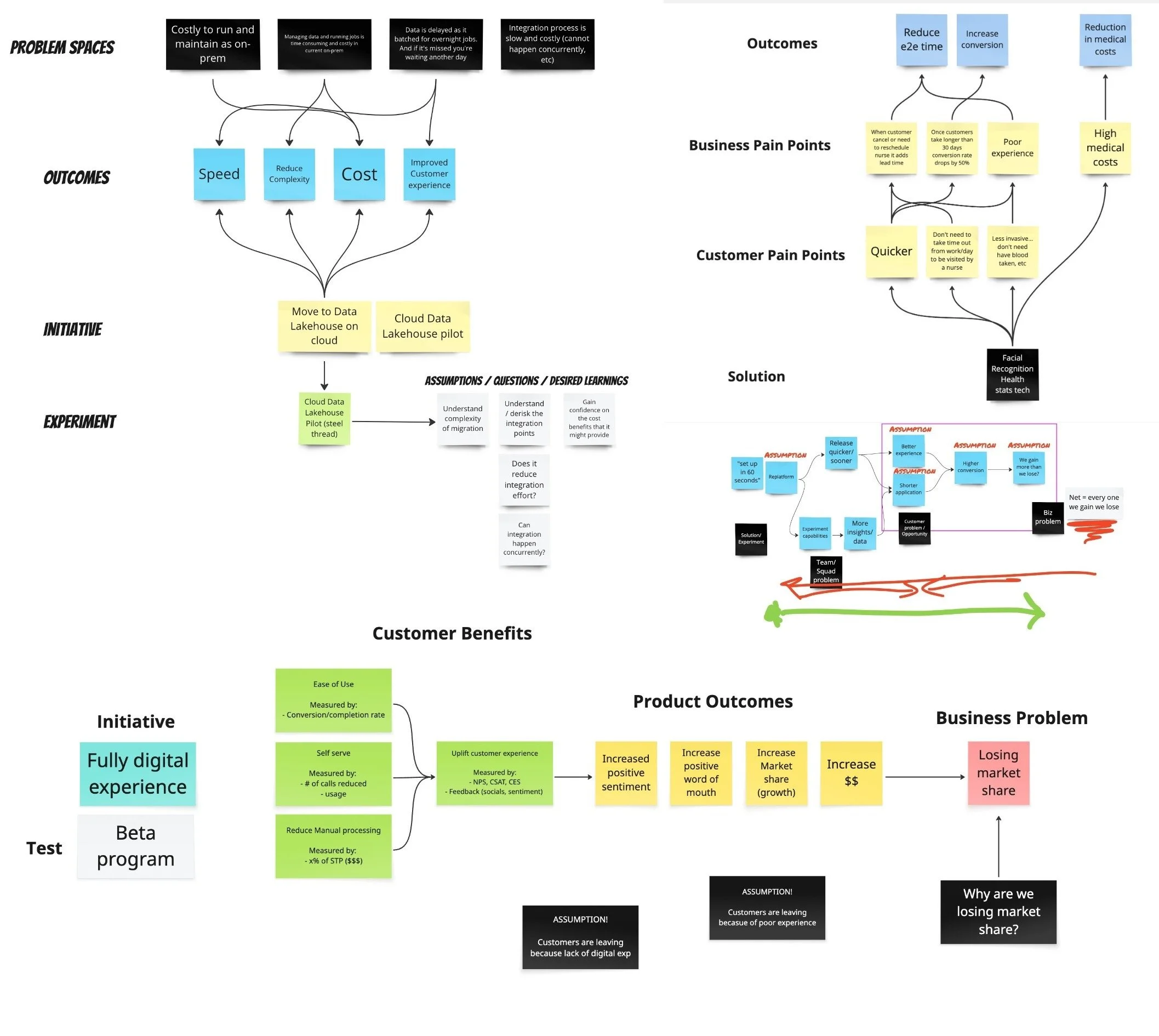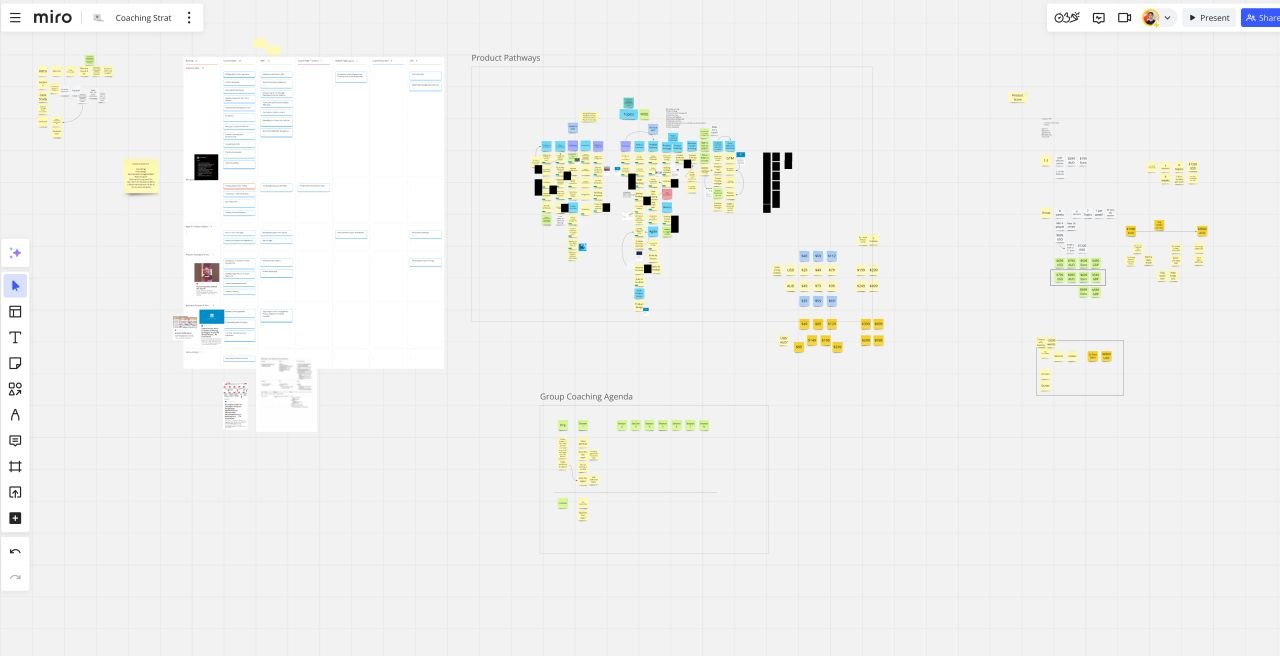Without Conflict, There’s No Change
A bit of a different tune for me this week, but this post is dedicated to a dear friend who was in a tough place and reach out for support this week.
Although this is more a personal development post - the notion is 100% related to leadership and business.
Photo by Koshu Kunii on UnsplashI heard someone once say "the level of conflict you're willing to endure will be the level of change you inflict".
This really stuck with me over the years and I come back to this notion regularly.
Why?
Because inadvertently when we introduce change, not everyone is going to be thrilled about it.
Imagine you've been offered an exciting new role. You tell your manager and team, and they're not happy.
Naturally, as you’re a valued team member and an integral part of the team.
In other, more extreme cases, they might stipulate conditions for your departure or bring up your contract.
But regardless there will be a level of conflict. They may offer you a raise or even just remind you how great it is working here or how much you get along as a team, anything to convince you to stay.
Whether it’s as extreme as dealing with contractual obligations or simply needing to say ‘no’ to staying, there will be a level of conflict to attend to - you’re not walking away without disappointing someone or forfeiting the new exciting role.
And this applies to any sort of change.
Now let’s imagine you want to introduce a new practice at work.
Perhaps you want to introduce continuous discovery practices to your organisation - not everyone is going to be as pumped about it as you are. You're going to have to attend to objections and face resistance.
This is one of the reasons why consensus often fails - if you please everyone, you please no-one (note, consensus is necessary in certain scenarios but not all).
Perhaps the reason why the quote really struck me was that I never really thought about the relationship between conflict and change before that.
If you choose to please everyone, not ruffle feathers then you're never going to change anything - including yourself!
I remind myself of this quote anytime I post something that sparks an argument. I invite it! I invite the disagreement. Whilst some people aren't constructive most are and the discussion is worthy.
I know I'm on to something every time this happens. I don't want flat agreement, of course I love it when a concept resonates but I'd rather invoke thought and reflection. Because that’s how we grow and improve.
And I want to improve myself. Every disagreement is an opportunity to do just that - to hear a different perspective and evolve my thinking.
This is a great example of how this notion works in practice. If I never posted because of the risk of ‘backlash’ and if they never commented with their competing view for the same reason. Neither party would have had the opportunity to engage in a debate (conflict) and potentially change our perspective as a result.
We often refer to this conflict as "constructive criticism".
At a company level we want to create an environment where people feel safe to do this - to raise concerns, new ideas and disagree with each other.
Take the classic HiPPO (Highest Paid Person’s Opinion) effect as an example. Companies with HiPPOs suffer because their system and culture discourages disagreement with “the boss”.
When a HiPPO has an idea or disagrees, it’s “their way or the highway” - not exactly the recipe for change!
Companies with lots of HiPPO’s (Highest Paid Person’s Opinion) suffer as they discourage disagreement with “the boss”This is perhaps an important notion for the leaders out there. You want to have a level of (healthy) conflict in your organisation. You want people to disagree, to challenge ideas and bring in new ones.
Sure harmony is great and it’s nice when everyone agrees but will you achieve better outcomes? Will the best ideas rise to the top? Will you be able to improve the things which aren’t working?
I expect not.
Reflection
None of this is easy and it’s perhaps one of the reasons why change is so hard.
It’s uncomfortable. It’s typically easier to ‘walk on egg shells’ and keep others happy than cause conflict. But if the change is really important, if we truly believe in what we’re proposing then we must ‘face the music’ - and that will take no small dose of courage to do.
For everyone:
Are you a people pleaser?
Do you avoid conflict?
When you see something that’s not right do you speak up?
When you disagree with something, do you share your opposing-opinion?
Do you invite conflicting perspectives? Are you willing to have the hard discussions in order to improve the things that matter to you?
Are you keeping others happy at the expense of new opportunities?
For the managers and business leaders reading:
Do you invite disagreement, new ideas and (healthy) conflict in your organisation?
Do people speak up when they disagree or have a new idea? When they do, how are they treated?
Are your continual improvement practices (like post-mortems or retrospectives) shallow and yield little value? Do you go deep and have the hard conversations about what’s not working and what needs to be improved?
Does your culture promote harmony over (healthy) conflict?
Do you have “yes-people” or even HiPPOs in your organisation?
For the founders and entrepreneurs:
How much do you believe in your vision and path? Are you willing to fight for it? There will be conflict, are you willing to endure it?
Are you ready to face disagreement, naysayers, and be told that you’re wasting your time? (remember the founder of Spotify was being rejected by record labels for 9 months straight before they had a break. Google tried to sell to Yahoo in the early days for a cool $1 million and was rejected - the list goes on)
Are you willing to disappoint your friends and perhaps even your family? That might be what you need to do. To say no to going to a party or football game. To stop going out on a Friday night and work on your business instead. Plenty of entrepreneurs have spoken about having to do just that. Like Alex Hormozi who spoke about doing everything his dad wanted and realising he was living for his father, not himself (clip below).
Need help with scaling your business or product? I can help in 4 ways::
Level up your craft with self-paced deep dive courses on specific topics such as Prioritisation, Stakeholder Management and more.
1:1 Coaching/Mentoring: I work with product people and founders through 1 hour virtual sessions where I help them overcome challenges.
Private Workshops and Training: I frequently run private workshops and tailored training courses for product teams globally. Get in touch to talk about your unique training needs.







